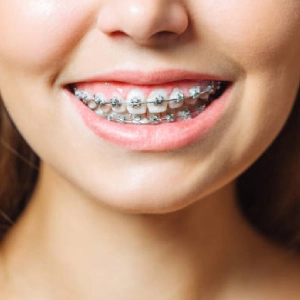"Why do my braces hurt after tightening?" This is a question that many people getting braces may wonder about. It's normal to feel discomfort after your braces are tightened, and it can make you curious about why it happens. Understanding why braces hurt after tightening can help you handle the discomfort better and stay positive during your orthodontic journey.
After your braces are tightened, you might feel some soreness. Everyone experiences it differently – some might not feel anything at all. But don't worry; we're here to help you through it. Learn why your teeth might hurt and discover ways to make them feel better.
During orthodontic treatment, your orthodontist actively moves your teeth to new positions. This process can affect blood flow around the teeth, triggering an inflammatory response. This response releases substances that activate your pain receptors, causing your teeth to feel sore as they move.
At each appointment, your orthodontist adjusts the archwire, the metal wire that spans your smile and connects your brackets. Depending on your case, they may bend, tighten, or replace the wire. As the wire strains to return to its original position, it applies gentle pressure on the teeth, gradually straightening your smile.
While some patients don't experience pain after their appointments, others may feel discomfort for 1-3 days. The good news for new patients is that soreness tends to lessen with each subsequent appointment after the first six months.
If you are having any discomfort after tightening the braces, follow these tips to feel better.

It's normal to experience some discomfort during your orthodontic treatment – it's a natural part of the process. Consider the remarkable transformation happening with your braces. Moving your teeth into new positions requires effort, and some discomfort is to be expected along the way. Remember, the temporary sensitivity will be worth it in the end for the beautiful smile you'll achieve.
Understanding "why do my braces hurt after tightening" helps alleviate concerns and discomfort associated with orthodontic treatment. By recognizing the natural process of teeth movement and inflammation, patients can better manage their pain and stay motivated throughout their orthodontic journey.
Ready to address your orthodontic concerns and discomfort? Book an appointment with Dr. Afroz Burges DDS, PA, today. New patients can call at 281-547-2632, while all other callers can call at 713-340-2889 to schedule a consultation and explore treatment options.
After tightening your braces, you may experience discomfort similar to when you first got them. However, this unease typically subsides within 1-3 days after your appointment. To ease discomfort during brace adjustments, consider using over-the-counter pain relievers. You can also find relief by consuming cool items to soothe the soreness.
The mouth is highly sensitive to change, so when the wires or brackets are tightened, it can make the teeth feel "tight" too. This sensation occurs due to the pressure associated with tightening the wires.
The discomfort occurs because the bones surrounding the teeth need to soften to accommodate the teeth's new position. Typically, the discomfort subsides within a few days.